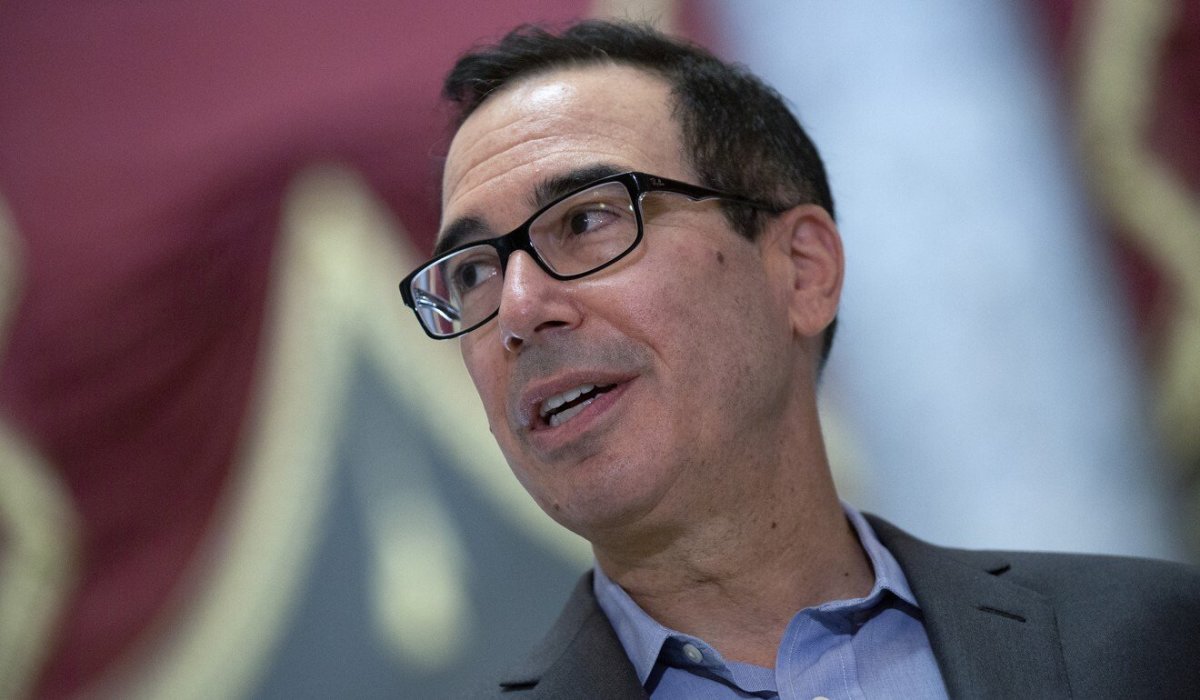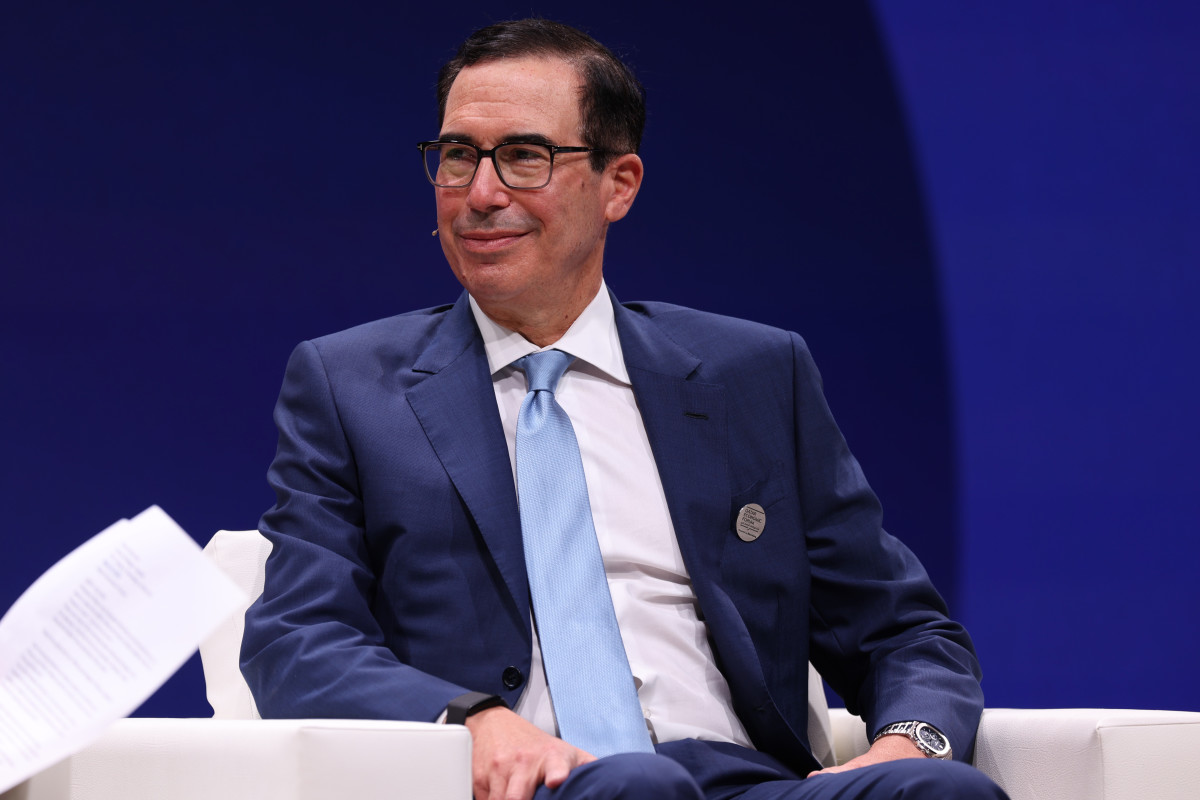
Shares of New York Community Bank (NYCB) were surging Thursday after former Treasury Secretary Steven Mnuchin and his Liberty Strategic Capital led a $1 billion rescue of the company.
The regional bank saw its stock jump as much as 16% to $4.02 in Thursday trading, after it had sunk more than 40% in the previous session. The stock tumbled following a report in The Wall Street Journal that the company was looking to raise new capital to shore up its balance sheet.
Earlier, the company had stunned investors on Jan. 31 by reporting an unexpected fourth-quarter loss, causing the stock to tumble to its lowest level since 1997.
NYCB deposits outflow, then 'strong again'
On Thursday CNN reported, citing an investor conference call this morning, that customers pulled $6 billion of deposits from Feb. 5 through March 5, leaving the bank’s deposit base 7% lower at $77 billion.
The bank’s level of deposits saw no significant changes prior to its disclosure last week that the financial institution had identified “material weakness” in its controls, Sandro DiNello, who had been named chief executive at the end of February, had said.
“Friday was not a great day,” he said. “Over the weekend, Monday and Tuesday deposits were strong again.”

NYCB cuts dividend second time this year
The bank is cutting its quarterly dividend for the second time this year, to 1 cent per share from 5 cents, an 80% drop.
Related: Former Treasury secretary leads $1B rescue for troubled NY bank
In addition, NYCB was recently downgraded to junk status by both Moody’s Investors Service and Fitch Ratings.
Now, Mnuchin and an investor group have stepped in.
“We decided to make this investment because we believe Sandro, alongside new management, has taken the appropriate actions to stabilize the company and to position NYCB to become a best-in-class $100+ billion national bank with a diversified and derisked business model that supports long-term profitability,” Mnuchin said in a statement Thursday.
As CEO DiNello had succeeded Thomas R. Cangemi, who'd been with NYCB for 27 years. With the new capital plan, Mnuchin will join the NYCB board along with Joseph Otting, who was named the new CEO. Otting, a former U.S. comptroller of the currency, has longtime ties to the former treasury secretary, who served in the Donald Trump administration.
Mnuchin told CNBC in an interview Thursday that he started looking at NYCB “a long time ago.”
“The issue was really around perceived risks in the loans, and with putting billion dollars of capital into the balance sheet, it really strengthens the franchise and whatever issues there are in the loans we’ll be able to work through,” Mnuchin told “Squawk on the Street.”
Separately, Wedbush analysts slashed their price target on New York Community Bank, telling investors in a research note that “while this deal provides a much-needed lifeline to NYCB, it is tremendously dilutive to [common-share holders].”
The firm said in a research note that the $1 billion equity infusion — and the potential for an additional $600 million based on exercise of warrants — would double common-shares outstanding. But the plan also, the investment firm said, “should incrementally improve depositor confidence, and incrementally reduces the chances of the bank entering into FDIC receivership.”
Analysts concerned about office properties
“The increase in capital should also allow NYCB to boost its loan-loss reserve to what we view to be more appropriate levels given the ongoing stress in the NYC rent-regulated multifamily and office assets (26% of loans combined) that are the sources of stress in its loan portfolio,” Wedbush said.
More Real Estate:
- Elon Musk Warns About a New Housing Crisis Worldwide
- These Affordable US Real Estate Markets Are Under the Radar
- Dave Ramsey Explains Why Now Is a Great Time to Buy a House
NYCB has 395 branches in New York, Michigan, New Jersey, Ohio, Florida, Arizona and Wisconsin.
The bank has a concentration of branches and operations in and around New York City. It has been one of the largest lenders to owners and developers of rent-controlled apartments.
"We're especially concerned with rent-regulated multifamily (about 22% of total loans) and office property economics given pressure on debt service coverage ratios as a result of higher rates and work from home," Wedbush said.
The firm’s analysts said that they feared loan maturities could pressure borrowers who are unable to come up with more equity to support their properties in a refinance transaction. “[This] could lead to negative credit migration and/or concessions by NYCB to extend loan maturities at below market rates.”
In addition to Mnuchin, the investor group behind the bailout includes Hudson Bay Capital, Reverence Capital Partners, Citadel Global Equities (part of the Citadel hedge fund) and others.
Related: Veteran fund manager picks favorite stocks for 2024







